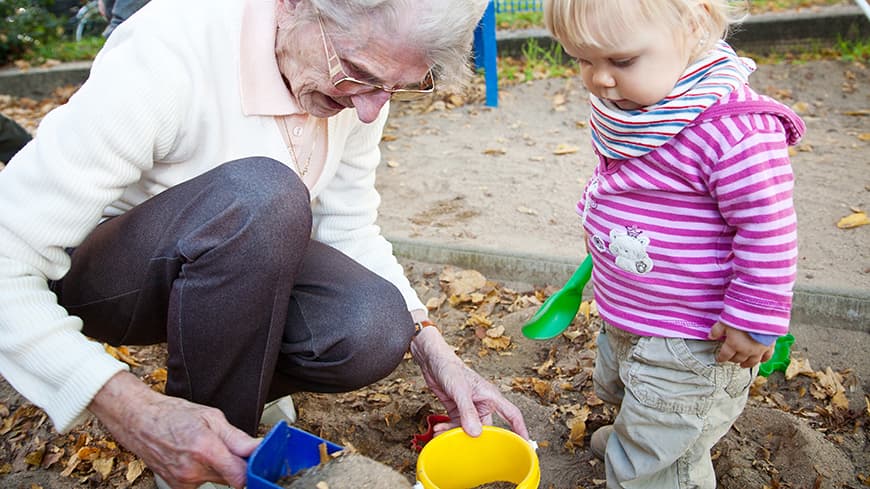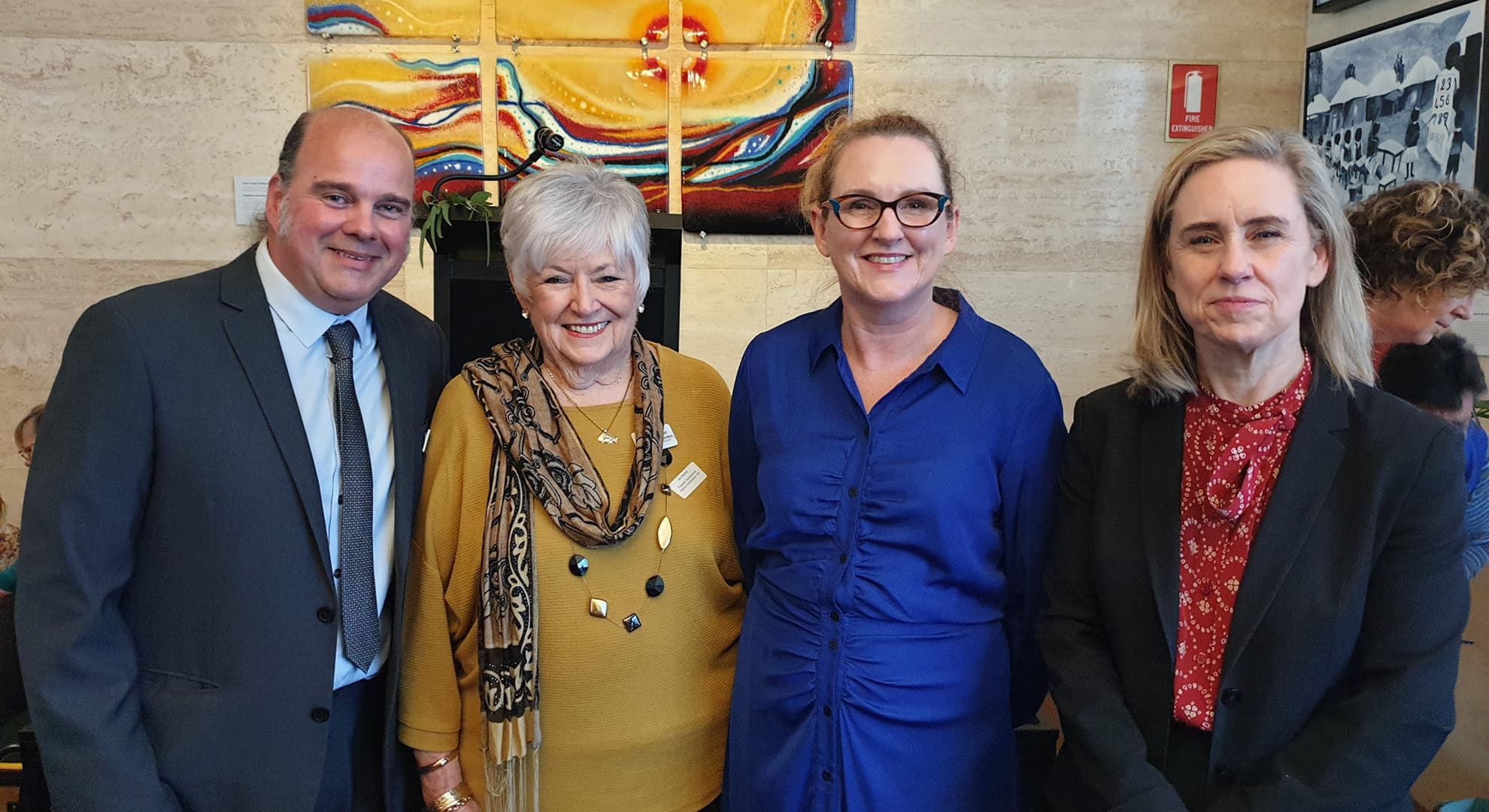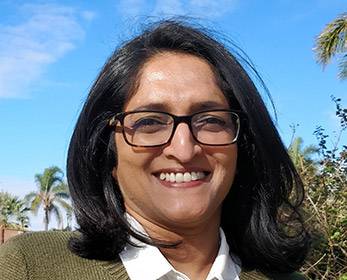In a standout example that proves the immense value that university applied research contributes to society, ECU research has been the catalyst for a six-million-dollar investment by the WA government to support an incredibly vulnerable group.
Across Australia, tens of thousands of children are now being raised by their grandparents. Now known as 'Grandcarers', this previously invisible group has been 'propping up' society with little support on their side.
ECU researchers collaborated with community organisations in what has been the largest study of its kind in Australia, to explore the lived experiences of these 'Grandcarers'.
Lead Researcher, ECU's Dr David Coall, brought together an experienced interdisciplinary team from ECU's School of Medical and Health Sciences and Kurongkurl Katitjin with Wanslea Family Services and Community Vision with a research project designed to inform government policy making and service delivery.
Dr Coall explains that the research project's findings have enabled evidence-based government lobbying and advocacy work, which has resulted in significant policy change that has made a real-world impact on vulnerable families.
"Our research group is proud to have been influential in driving this change – it's a been a huge win that's achieved a three-fold increase to payments for WA grandparents who are the primary carers of their grandchildren," said Dr Coall.
This represented the first increase in the payment since it was introduced eight years earlier.
 Grandcarers feel great joy of being integral to their grandchildren's lives, but 66% are living below the poverty line in Australia.
Grandcarers feel great joy of being integral to their grandchildren's lives, but 66% are living below the poverty line in Australia.
Labour of love
Dr Coall explains that Grandcarers are raising their children's children and in doing so they are experiencing a life of significant poverty, with 66% living below the poverty line.
"This is a heartbreaking statistic, and we know that half of these cases are due to parental alcohol and/or drug misuse, other factors include mental and physical illness, homelessness, child abuse, neglect and parental incarceration," said Dr Coall.
As the number of grandparent care arrangements has grown, so has the urgency for substantial policy change to improve the support for these vulnerable families.
Despite the great number of children and their grandparents finding themselves in this situation, multiple federal government inquiries identified a lack of understanding about the specific challenges they face.
"Our stark research findings uncovered heartbreaking challenges faced by this growing group of carer givers. Results showed significant financial hardship affected Grandcarers in ways that were not experienced by foster carers.
"These carers struggle with real financial stress, housing issues, and barriers to services, and as 77% of these vulnerable families only have informal care arrangements, it means they often can’t access the financial support or services intended to support to them.
The researchers engaged with Grandcarers and 'Grandparents Rearing Grandchildren WA', Aboriginal Elders, Department of Communities, Centrelink, Community Service Providers, WA Members of Parliament and Australian Senators to gain a deeper understanding of the challenges for grandparents who take on the role of primary care giver.
"We found that although the vast majority of Grandcarers (76%) were satisfied with their role, feeling the great joy of being integral to their grandchildren's lives, they are likely to be single (44%) and be looking after more grandchildren than the average family and 70% of them are women," said Dr Coall.
"One of the most concerning issues, discovered thanks to this generous cohort of 622 Grandcarer participants, is that all these grandparents have lower health scores than their peers, whether the arrangement is formal or informal, or they are Aboriginal or non-Aboriginal."
 Across Australia, tens of thousands of children are now being raised by their grandparents, known as 'Grandcarers'.
Across Australia, tens of thousands of children are now being raised by their grandparents, known as 'Grandcarers'.
The Impact of research
Federally, as a result of Dr Coall and the team and its community-based partners dedicating seven years to building support within the Australian Senate, the Western Australian Government re-established the ‘Parliamentary Friends of Grandparents Raising their Grandchildren’ (since renamed Parliamentary Friends of Grandparent and Kinship Carers).
The group, co-chaired by members of Australia's three main political parties, offers Grandcarers, researchers, service providers and other interested groups with a pathway to engage with members of parliament who share a strong interest in the wellbeing of Grandcarer-led families.
In recognition of the importance of his team's research, Dr Coall was invited to attend the WA Parliamentary launch of the initiative.
"Campaigning at both the State and Federal level was extremely successful, enabling the research by ECU to significantly impact the lives of WA Grandcarer Families directly," said Dr Coall.
Impact investigations are ongoing, however, there is anecdotal evidence that more Grandcarer families have been accessing the funding available to support them and that the increase in payments.
Real-life research
Dr Coall and his team used specific research methodology to increase the diversity of Grandcarer voices, which enabled them to also involve a significant number of Grandcarers from remote Aboriginal communities in the Kimberley region.
In addition to advocating for improved financial support, community services provider and research partner, Wanslea Family Services used the research as the basis of a campaign, 'A Fairer Future for Grandchildren,' designed to raise awareness of the challenges faced by Grandcarers, and advocate for better service provision to Grandcarers at all levels of government. The campaign garnered extensive media attention, including significant national prime time television coverage on ABC's 7.30 Report (19 February 2019).
Driving onwards
Based on the success of this research, Dr Coall is seeking additional partnerships and funding opportunities to better understand the particular issues facing this group in order to drive further impact.
Dr Coall is currently seeking funding to undertake further research into the experiences of grandchildren in care, with a proposed study of Adult Grandchildren Raised by their Grandparents. The proposed study is expected to provide deeper insights into systemic influences upon this vulnerable group and provide a rich evidence base for government to draw upon in the ongoing pursuit of supporting thriving communities.
Acknowledging collaborative team
ECU Research Lead Dr Coall said he wanted to acknowledge all the researchers involved in the critical project, Dr Ruth Marquis (Vale), Dr Shantha P. Karthigesu, Elizabeth Wenden, Myra Taylor, Dr Julie Dare (SMHS), Francesca Robertson (Kurongkurl Katitjin), Rebecca Bullingham (SMHS), Dr Katrina Stratton (Wanslea Family Services), and Jenny Werner (Community Vision).

 Dr David Coall (ECU), Jan Standen (then President, Grandparents Rearing Grandchildren WA), Dr Katrina Stratton MLA and Hon. Simone Frances McGurk MLA.
Dr David Coall (ECU), Jan Standen (then President, Grandparents Rearing Grandchildren WA), Dr Katrina Stratton MLA and Hon. Simone Frances McGurk MLA.




